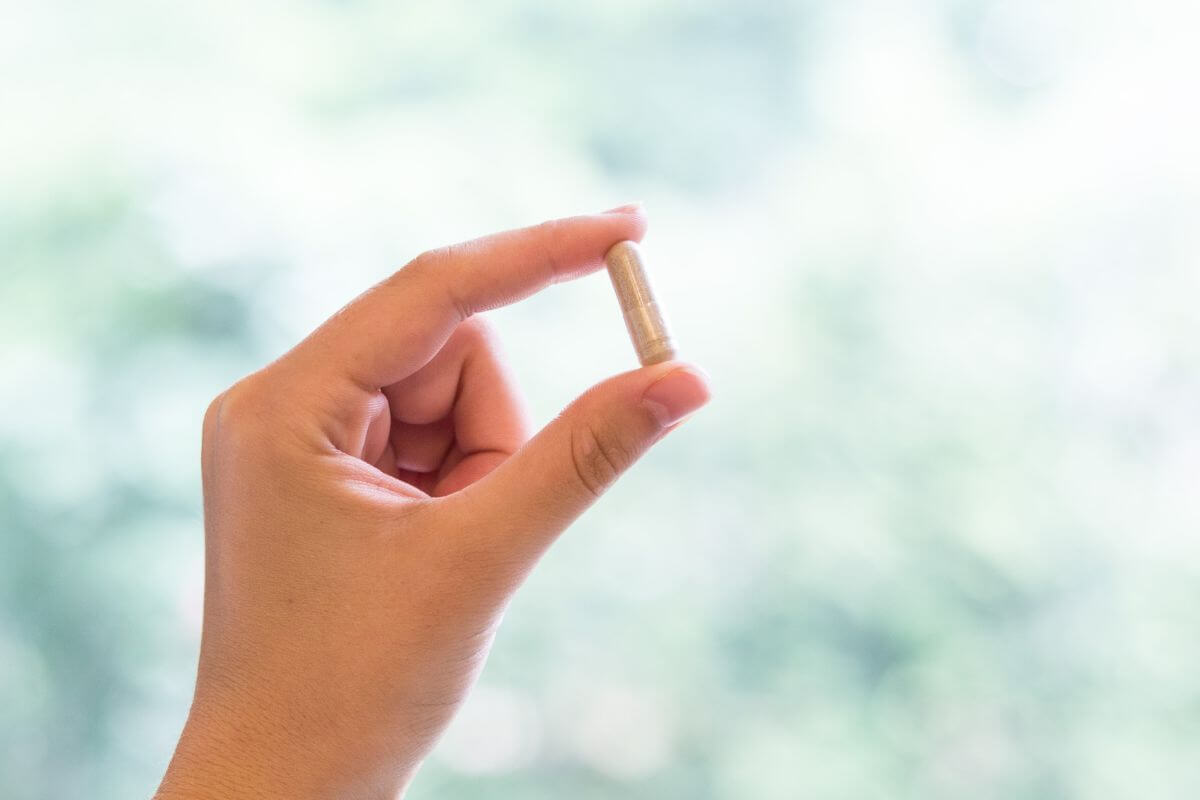Hi, my name is Allison Schaaf. My own fertility journey, including five miscarriages, inspired me to create this website to help you navigate your own fertility path.
Here are the key takeaways I would share with you as a friend:
- Myo-Inositol can support fertility, especially for women with PCOS.
- Insulin resistance is common in women with PCOS. Myo-Inositol mimics insulin, helping with blood sugar control and, thus, fertility.
- While Myo-Inositol is generally considered safe, it is not regulated by the FDA as a dietary supplement. You should consult with your doctor on specific dosages that are right for you.
I also recommend you do your own research and work with your doctor. That is why I have coordinated these articles with the nitty-gritty details and links to research so you can make an informed decision on what works best for you… read on for more! And—don’t miss my Next Steps section at the bottom.
Myo-Inositol and Fertility
Myo-Inositol Dosing
Myo-Inositol Safety and Side Effects
Conclusion
Next Steps to Consider
There are many factors that influence fertility. Insulin resistance is a common condition among women with recurrent pregnancy loss and fertility issues 1. Myo-inositol is a promising nutritional supplement shown to help improve insulin resistance and fertility.
In this article, we’ll explore myo-inositol’s connection to fertility as well as myo-inositol’s dosage and safety parameters. The article information is for educational purposes, be sure to speak with your medical provider before beginning any nutritional supplement.
What is Myo-Inositol?
The terms myo-inositol and inositol are sometimes used interchangeably, but myo-inositol (MI) is an active form of the naturally occurring substance inositol. There are several different forms of inositol including d-chiro-inositol (DCI), which you may often find paired with myo-inositol in dietary supplements.
Myo-inositol is a naturally occurring sugar alcohol found in brain and body tissues. The body makes myo-inositol from glucose. Myo-inositol can also be found in a variety of fiber-containing foods such as citrus fruits, beans and whole grains. In the body, myo-inositol has two main roles with regards to fertility and reproduction–ovulation and growth of cells that will become an embryo. This is why it may play a role in improving pregnancy outcomes.
Myo-Inositol vs D-Chiro-Inositol: Fertility Partners
Myo-inositol (MI) and d-chiro-inositol (DCI) are two separate forms of inositol. The body can turn myo-inositol into d-chiro-inositol through a process that involves insulin.
Combination MI/DCI supplements are frequently used for women with PCOS to help improve ovulation and fertility. The recommended ratio of MI to DCI is 40:1 because DCI can inhibit the absorption of MI2.
There is growing evidence showing how DCI can help improve ovulation and metabolic markers in women with PCOS3,4. For the purposes of this article, the information below focuses solely on myo-inositol supplementation and not a combination supplement.
It is worth noting that many myo-inositol supplements do come paired with d-chiro-inositol. And while not common, some fertility supplements, like FH PRO for Women already contain both myo-inositol and d-chiro-inositol. So it is worth checking your pre-natal before adding myo-inositol to your regimin. Discover more about fertility supplements in our Trying to Conceive Resources.
The Insulin and Fertility Connection
Myo-inositol acts like insulin in the body in that it effectively lowers blood sugar levels after a meal. Having high insulin levels is associated with troubles conceiving and early pregnancy loss5.
For a successful pregnancy outcome, embryonic cells need the right conditions in the uterus to grow and divide to eventually form a fetus. Myo-inositol is involved with the chemical messaging that embryonic cells need for growth and development6.
Polycystic Ovary Syndrome, commonly known as PCOS, is a menstrual disorder marked by insulin resistance as well as fertility issues. Though the symptoms vary widely among women with PCOS, nearly all women will experience insulin resistance as a part of their condition.7
Supplementing with myo-inositol has become increasingly popular as a safe and effective additional treatment option for PCOS and fertility8 . The insulin mimicking the action of myo-inositol has a positive effect on blood sugar control and fertility. Let’s further explore the connection between myo-inositol and fertility.
Myo-Inositol and Fertility
In order to understand the connection of myo-inositol and fertility, we need to discuss the connection between insulin and fertility.
Insulin is released by the pancreas in response to the glucose from carbohydrates in food. This is a natural process in which insulin helps usher glucose into cells and muscles where it is either used for energy or stored in fat.
Insulin resistance is when the insulin that the body produces is not able to get all the blood sugar into the cells. This leaves higher levels of insulin and glucose in the bloodstream, which has negative effects on fertility.
When there is too much insulin in the body, it directly influences hormones such as estrogen, which is needed for fertility and to carry a healthy pregnancy to term9. Insulin resistance directly affects the body’s ability to ovulate, which is essential for conception.
Hyperinsulinemia, a term for too much insulin in the blood, negatively impacts the environment of the endometrium, which affects the ability of the egg to implant into the uterus.
Myo-Inositol for PCOS
Women with PCOS have a 30 to 50% increased risk of pregnancy loss in the first trimester10. During pregnancy, there is a natural increase in the body’s insulin resistance because of pregnancy hormones11.
The added insulin resistance during pregnancy is problematic for women with preexisting insulin resistance. This increased insulin resistance is a contributing factor to the high early pregnancy loss rate12.
Metformin, an insulin sensitizing drug is typically first line treatment for improving insulin sensitivity in women with PCOS13. However, myo-inositol is quickly becoming a solid supplemental option for improving insulin sensitivity.
Myo-inositol is a promising natural supplement to alleviate the effects of hyperinsulinemia and increase fertility. In one observational study of 3,200 women given a myo-inositol and folic acid supplement for 12 weeks, 70% of the women experienced restored ovulation and 15% of the women became pregnant during the study14.
Clinical trials using myo-inositol as a preventative treatment in women with PCOS are showing positive results. Supplementation with myo-inositol showed improvements in insulin sensitivity, hormone signaling and increases in progesterone levels. In several studies, myo-inositol showed similar increases in ovulation and progesterone levels to the prescription medication Metformin15.
Myo-Inositol for Ovarian Sensitivity
One pilot study examined the effect of myo-inositol along with folic acid for women with poor ovarian response receiving fertility treatments. A small group of women were given 4 grams of myo-inositol along with 400 mcg of folic acid16. After a 3 month supplement period, the ovarian sensitivity index increased significantly, resulting in more oocytes that can be harvested for fertility treatment17.
The results of the pilot study were validated in a similar study. Myo-inositol may also work for women without PCOS undergoing fertility treatments. One small-scale study showed that a supplement including 4 grams of myo-inositol and 400 mcg of folic acid showed significant increases in ovarian sensitivity and fertilization rates18. This has promising applications for women going through assisted reproductive technique.
Myo-Inositol for Gestational Diabetes
Women with a family history of diabetes, previous diagnosis of gestational diabetes or who are currently overweight or obese are at risk of developing gestational diabetes. Gestational diabetes is a condition affecting 14% of pregnant women.
Myo-inositol supplements can help to decrease the development of gestational diabetes in pregnant women19. Several studies have demonstrated that 4 grams of myo-inositol, often paired with folic acid dramatically reduces the development of gestational diabetes by as much as 67%20.
Myo-Inositol Dosing
The Food and Drug Administration does not regulate myo-inositol as a dietary supplement. There aren’t precise dosing recommendations as one might find in prescription medication. Therefore, we should look to scientific research to see the most consistently studied dosage guides.
One literature review demonstrating the positive effects of myo-inositol on improvements in ovulation, hormone production and pregnancy looked at studies using 2,000 milligrams twice per day21. The duration of the studies varied from 6 weeks to 6 months and consistently showed improvements in ovulation and conception.
A majority of the studies on myo-inositol use a total dosage of 4,000 milligrams per day, as either a single dose or split between two doses per day22. Some studies used a combination treatment with myo-inositol and folic acid, an important B vitamin in early pregnancy.
Supplementation with 4,000 milligrams per day also helped delay the onset of gestational diabetes in women with insulin resistance23,24.
Additional data from clinical trials can provide insight into an effective dose. Be sure to consult your medical provider for myo-inositol dosing. And a reminder to check any pre-natal you might be taking as some (for example, FH PRO for Women) already contain myo-inositol.
Myo-Inositol Safety and Side Effects
Myo-inositol is unique in that it can be taken directly as a dietary supplement or used as a food ingredient. The Food and Drug Administration (FDA) categorizes the food ingredient inositol, and myo-inositol as “generally recognized as safe” for consumption25.
The FDA does not regulate myo-inositol as a dietary supplement. Despite this, there have been research studies on the safety and effects of myo-inositol in mouse and human studies. Supplementation doses range from 1 to 60 grams per day over a time period of 4 weeks to 12 months.
In a clinical review, there were no significant side effects reported in doses less than 12 grams per day26. Some women experienced mild digestive symptoms such as nausea, diarrhea and gas with a 12 gram dose27.
Women can safely supplement with myo-inositol before and during pregnancy under the guidance of their medical provider28.
It is important to note that myo-inositol has shown significant ovulation and fertility benefits to women with PCOS and who are at-risk for gestational diabetes. However, it is still uncertain as to whether women without these conditions will experience the same effects. More research can help uncover the full range of benefits of myo-inositol and fertility.
If you are supplementing with myo-inositol and become pregnant, discuss with your medical provider whether continuing the supplement is medically necessary.
Conclusion
A woman’s fertility journey is unique and personal. If you have been diagnosed with PCOS or have insulin resistance, it can affect ovulation and pregnancy outcomes. Myo-inositol is a promising dietary supplement that helps improve insulin resistance and fertility. Consult your medical provider today about adding myo-inositol to your daily routine.
Note: This article contains affiliate links. We appreciate your support!
Next Steps to Consider
- If you are struggling with fertility, speak to your medical provider about whether to add myo-inositol supplement to help improve fertility.
- Myo-inositol doses of 4,000 milligrams per day may help to improve ovulation, fertility and pregnancy outcomes. Consider using a pre-natal, like FH PRO for Women which already contains myo-inositol and d-chiro-inositol.
- Check out our library of Trying to Conceive resources for more information on supplements, Fertility Meal Plans, Hormone Tests and more.
References




0 Comments